And the wind cries megawatt
August 9, 2023, 8:13 am , by Richard Lutz
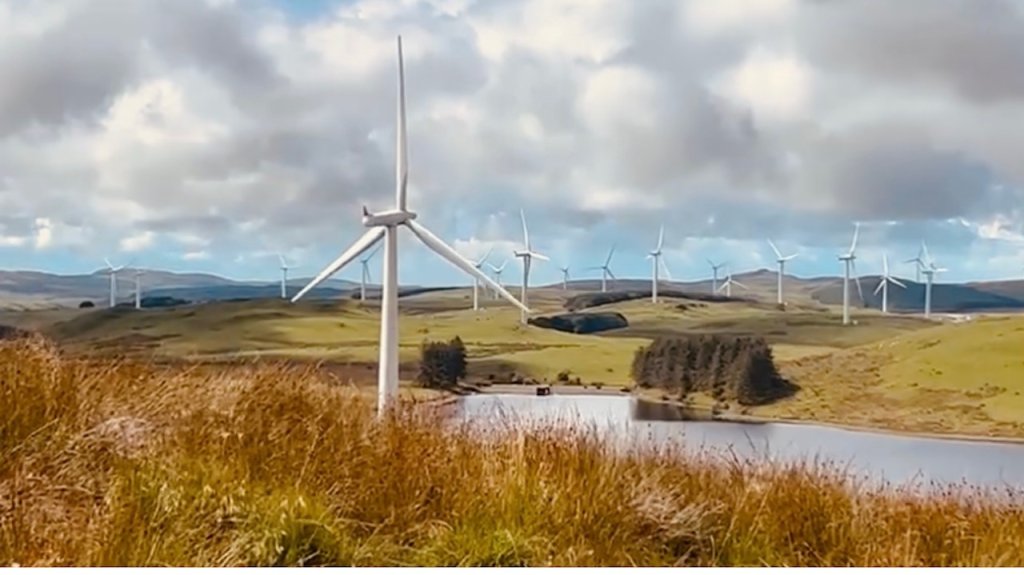
Richard Lutz wanders through fields of electricity
It’s hard to get a decent picture of Hadyard Wind Farm. It’s just so big:
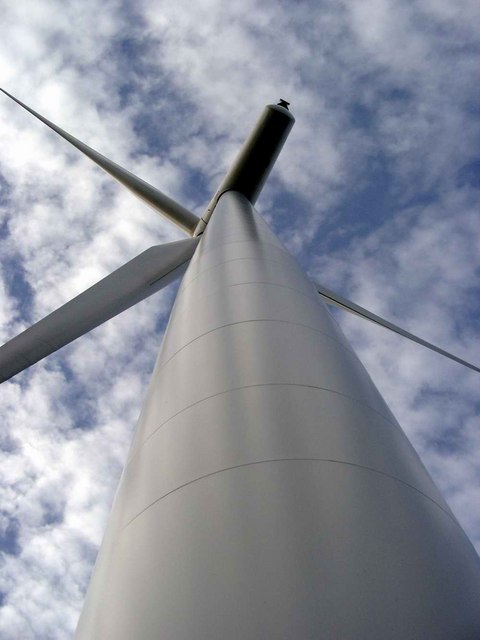
The steel towers soar to 70 metres and its sweeping blades spread an equal distance. They produce, its owners are proud to claim, 120 megawatts of power. Though I have to say I’ve no idea what that actually means seeing how I have trouble plugging in a radio.
There are 52 of these turbines implanted on this farm on the South Ayrshire hills and moorlands. They face a grand western view. There’s the clear blue waters of the quirkily named Pinwhapple Reservoir, then the Firth of Clyde estuary and then the volcanic plug called Ailsa Craig. On the horizon, the Kintyre peninsula points to Ireland.
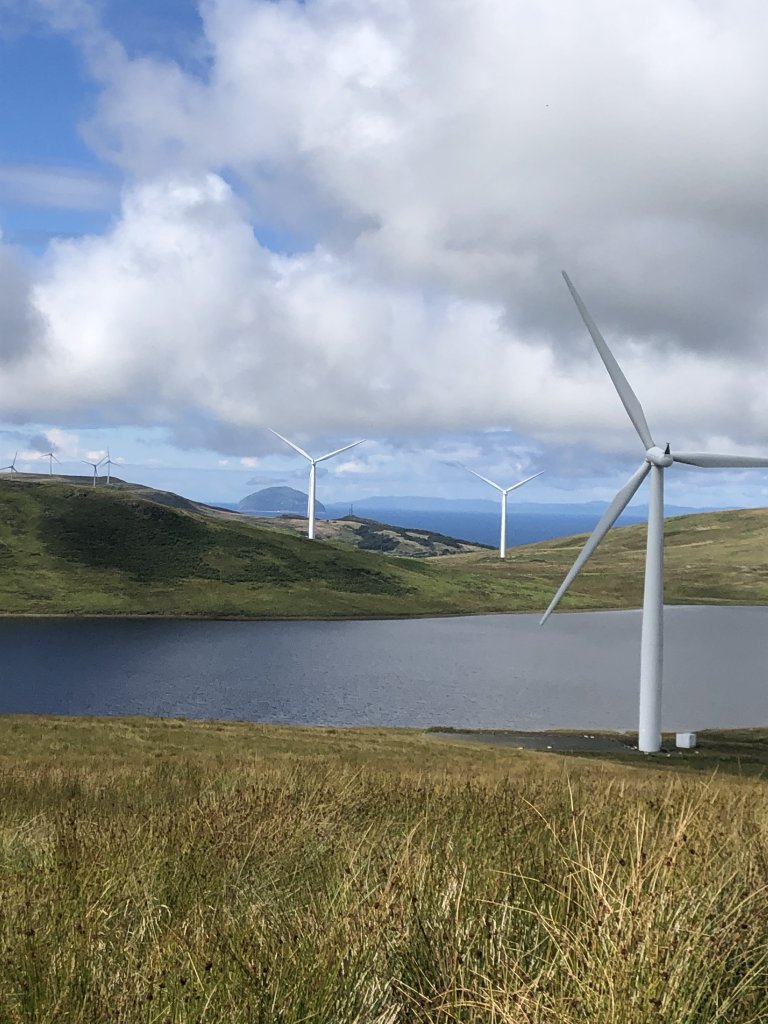
You walk through the site and seem to be always Looking Up.
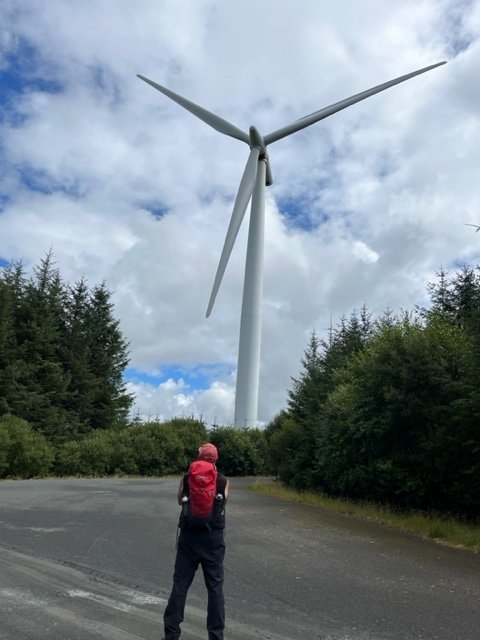
Always Up:
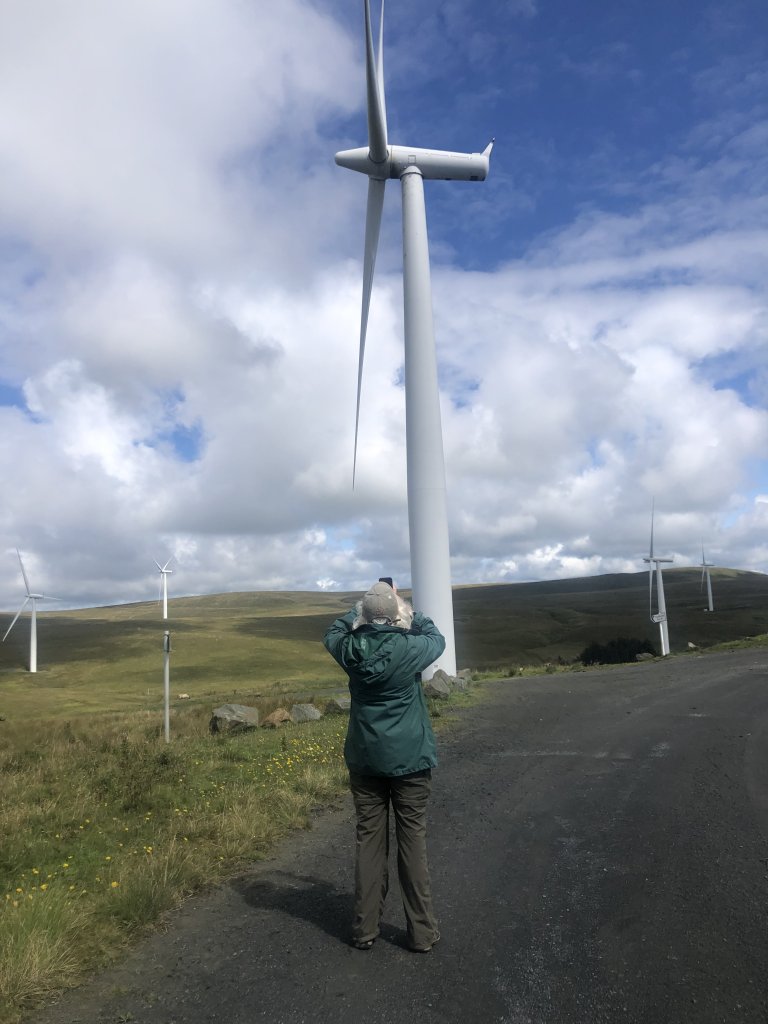
Sometimes the turbines loom eerily above the treeline:
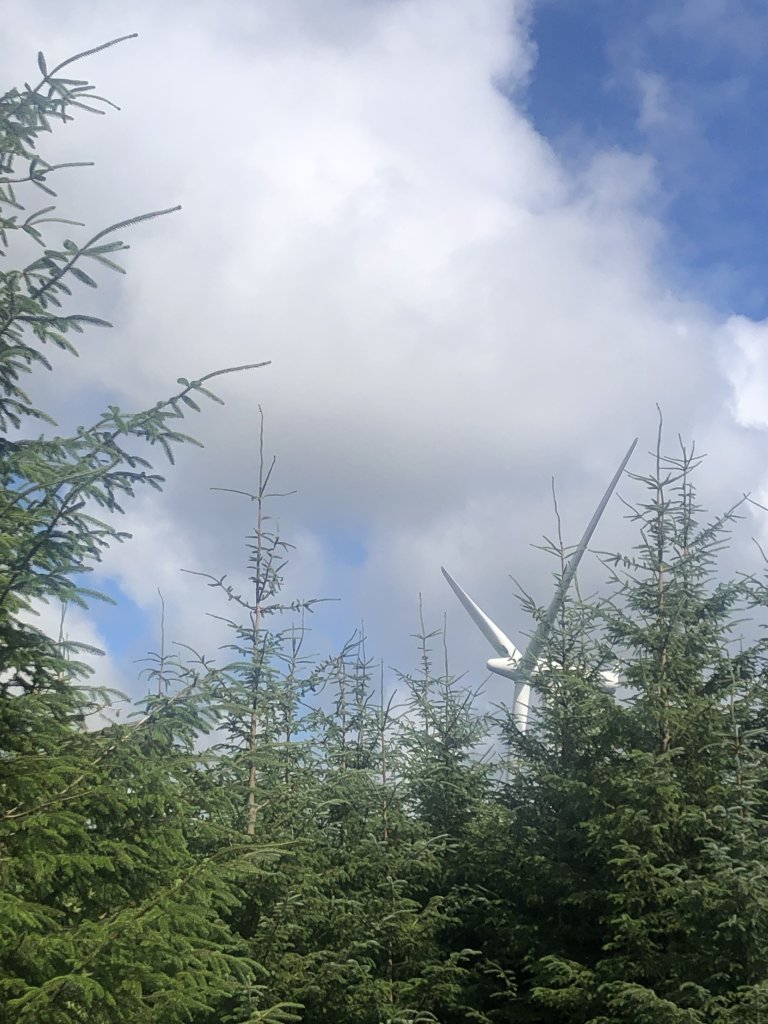
Or resemble a clockwork that is slowly racheting up something weird underground:

or a robotic trek on the day The Turbines Resist and Rise:

When you can get past the immensity of the wind farm, you notice its soundscape. After a while, it’s dominant.
There’s the inevitable whoosh of the rotating blades. And the sound as if waves are breaking on a shore. And below, a something softer – a hand brushing across fabric. Then there’s the low thrum of the motors way up. And, worryingly, there’s Turbine number 42: it contributes a hard clanging sound like your car’s wheel bearing is disintegrating. It’s a disturbing, to say the least, 70 metres above your head. We don’t stay long below 42.
Around the hills are the muted sounds of the forests and moorlands. Deer, sheep, fox (or is it a large stoat?). Small animals busy among the undergrowth. And almost imperceptibly, the minuscule flutter of painted lady butterflies:

Of course, not everyone is happy. Local villages and remote farms talk about road damage, environmental impact, reduction in property prices, ‘shadow flicker’ when the blades cross the sun and, controversially, talk of more turbines. Hadyard’s owners, SSE Renewables, point to £3m poured back into community projects. Though from my reading I can’t figure out whether that’s annually or a sum total.
On a clear vantage point, I count 72 turbines on Hadyard and farther away on the Southern Upland hills. Or is 74? Or 68? Each time I count, it’s different.




Will Travel
Will readers get the Hendrix link?
Sara McKay
Were you a journalist back in the day?
David G/ from Moseley
a lovely photograph of the butterfly
Bill Petrocelli
They do indeed pose a dilemma. Aesthetically they are a disaster in these beautiful, windswept landscapes but unless we are willing to fundamentally alter our lifestyles, what is the alternative in the battle to control global warming? When I was still walking with my mates across the Welsh hills, we did debate this issue at length – and to no unanimous conclusion.
Lyla Brookes
You can keep up to date with our campaigns at https://savestraitonforscotland.com/
Quresh
Enjoyable
LC
Your walk route was on the North side of Penwhapple Reservoir (a route that we occasionally combine with a romp up Maxwellston Hill as a winter walk. Ours last weekend featured Hadyard Hill Wind Farm (South) and the Carrick Way, which I recommend on account of fewer turbines, more “off piste” terrain, and more varied scenery.
Lee Kirkwood
looking from another angle
Mary Hill
Caught a fleeting glimpse on TV news of a failed wind turbine which seemed to have burnt out!!
Subscribe to new posts.